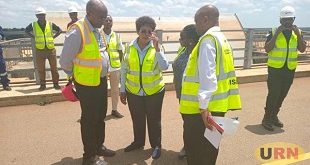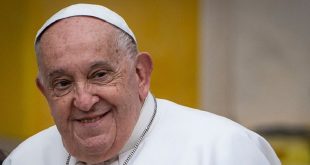
By Stephen Kafeero
As it stands, Kampala City Lord Mayor Erias Lukwago’s fate appears to have been sealed; it will indeed be easier for the proverbial camel to go through the eye of a needle than for him to wiggle out of the conundrum in which he is entangled.
But to many observers, his political future was in peril long before even Justice Catherine Bamugemereire’s report – complete with yellow ribbons – was handed over to Frank Tumwebaze, the minister for the presidency who is also responsible for Kampala.
Only a day after the report was handed over, Jenifer Musisi the executive director led a team of councilors opposed to Lukwago and their lead council Kiryowa Kiwanuka to State House to meet President Yoweri Museveni. There was an obvious waft of celebration in the air as the President’s guests took turns to get photo ops with their host amidst calls of “mzee with me too.”

Now, Lukwago faces a race against time, a period of run-ins with the police and of course the betrayal of his colleagues in the Council – to save his fledgling political career. In a few weeks, he will get to learn the inevitable – that his seat is now vacant.
Lukwago must surely be cursing the day he made the decision to relinquish his uncontestable Kampala Central seat in Parliament to run for the obviously precarious Kampala mayorship. Lukwago definitely knew he was going for a life in crocodile-infested waters – the NRM majority in the Council as well as an ED appointed by the President would definitely make his authority and influence very difficult.
How would he balance the need to please his voters with the need for effective service delivery in the city? So from the word go, it was a fatal mistake for the opposition to allow an NRM majority in the Council. In the State House meeting, the President and his NRM councilors reportedly discussed cross-cutting issues of development in the city.
What is apparent is that they are looking at a post-Lukwago era. Many Ugandans, investors and the business community would easily identify with the President’s argument that the government wants to promote a stable atmosphere for businesses to operate and grow in an organized environment and to ensure that the city, which is a gateway to Uganda, is safe and attractive for Ugandans and visitors.
That is why they are happy with what the ED Musisi has been able to achieve in the last 24 months. But many critics also point to that rhetoric as ostensible as Museveni has his eye firmly fixed on ensuring that he takes a firm grip on a city that has historically and for decades proven to be an opposition stronghold – a position that his rivals will not want to lose without a fight.
Indeed, a meeting organized by Opposition politicians sympathetic to Lukwago under their Inter Party Coalition (IPC) did not even take off since Police was heavily deployed and the roads leading to their headquarters were condoned off. A similar political rally called by the same group at Nakivubo Blue Primary School on Nov.18 was also blocked by the Police and the scuffles that followed led to the arrest of Lukwago.
Onerous legal regime
With the newly-enacted iron-handed and highly controversial Public Order Management Act now being the standard law being quoted by the authorities, Lukwago’s political career faces an uncertain next three years. Though he is entitled to appear in person and to be heard during the proceedings of the Council relating to the motion for his removal, he could find it hard to appear given the rigorous provisions of the law.
If the NRM-dominated Council passes a resolution with not less than two-thirds majority of all the members of the authority, Lukwago will lose his position. Earlier, Lukwago had indicated that he would be ready to run again in a by-election but even that might not happen as the Tribunal recommended that the KCCA Act should be amended immediately. With an NRM-dominated Parliament, chances are that amendments that don’t favour Lukwago will have a plain sailing.
The mayor will also have another option to appeal to the High Court within 21 days after his removal but even before that his legal team is working on a raft of petitions to the High Court and the Constitutional Court seeking a reversal of the Tribunal’s findings. Lukwago’s resolve will get encouragement from Justice Vincent Zehurikize who in a prior ruling over a petition that sought to block the tribunal from investigating him in July, said the process to remove Lukwago must be before a fully-constituted Authority.
KCCA hitherto had 30 councilors pending the election of the four representatives of professional bodies – Uganda Institution of Professional Engineers, Uganda Society of Architects, Uganda Medical Association and Uganda Law Society.
Medard Lubega Sseggona, one of Lukwago’s lawyers, however says there is already a legal hurdle because the new councilors are supposed to be sworn in at a council meeting convened by the Lord Mayor.  However, the Act (Sections 78-79) do give the Minister immense powers including the modification of a section of any law in its application to the Authority, power to veto decisions and to issue directives that must be complied with.
However, the Act (Sections 78-79) do give the Minister immense powers including the modification of a section of any law in its application to the Authority, power to veto decisions and to issue directives that must be complied with.
Most importantly, the Act gives power to the Minister to amend the 4th Schedule – the part of the law that gives the Lord Mayor the mandate to chair council meetings. The Act also gives the Council the mandate to regulate its own procedure or any other matter related to its meetings, all of which effectively make removing Lukwago a walk in the park.
Also according to Kiryowa Kiwanuka, the lead counsel for the petitioners, the councilors can be sworn in under the Local Government Act by the Town Clerk who Kampala’s case will be none other than the executive director.
But Sseggona says they will not be fazed. “Even if they breach the law and do the things the way they have been doing them, we are already challenging the report in court,” he says. In a last ditch effort to save Kampala from the talons of the ruling party, some opposition politicians are mooting the idea of a referendum under Article 255 of the Constitution which empowers the citizens to demand a referendum.
Dr. Abedi Bwanika, the president of the People’s Development Party (PDP), says this is the best way the people can assert their power given to them by the Constitution to choose how they should be governed. Some analysts fault Lukwago for getting himself in his current predicament by closely associating with opposition diehards such as Dr. Kiiza Besigye, Museveni’s nemesis and the hitherto leading opposition figure.
Lukwago was always seen side-by side with leading opposition politicians in their riotous acts around the city, which some people say was a misfiring on his part. They fault him for failing to appreciate the fact that the tide had changed when KCC became KCCA, essentially becoming a public organization that must comply with government policy. His attempt to maintain the KCC status quo was thus bound to land him into problems, according to his predecessor Nasser Sebaggala.
The price Lukwago is paying is what any other board chairman or official of a government body would have paid if he/she were to do a similar thing. Mukono Municipality MP Betty Nambooze Lukwago disagrees. She says Lukwago was right not to “betray his supporters as Ssebagala did.” Sebaggala, commonly known by his opposition supporters as ‘Seya’ jumped ship to Museveni’s NRM where he is now a presidential advisor.
At the official opening of the new Wandegeya Market last month, Museveni hinted that he would be willing to work with Lukwago if he “repented from his mistakes.” You can never say never in politics but the likelihood of that happening is remote. Dr. Besigye, however was adamant. “The Mayor (Lukwago) is here to stay. He will not move an inch. We shall resist all these government machinations to usurp the people’s power,” Besigye said.
Problematic KCCA Act
While the Tribunal proved the allegations against Lukwago, it also faulted Parliament for enacting “a problematic” law, which it said was the “breeding ground” for the polarization caused by incessant clashes between the ED’s technical arm and the political players. This it said was best exemplified by the law’s creation of two power centres – the ED and the Lord Mayor.
It suggested that the apparent wish by the Central Government to take over the capital city and run it without the involvement of the electorate and the status quo which puts politics ahead of service delivery were both untenable. Instead, it proposed a “hybrid” system, which merges the need for a representative of the will of the people but who is driven by the need for service delivery.
Under this approach, which appears to have received support from analysts, the city mayor would be chosen from among the five mayors of the divisions. Once the city mayor is elected, from among the five division mayors, he or she would relinquish the seat at the divisional level and remain “above the politics.”
The report argues that the intention of this approach would be to ensure that the Lord Mayor is not drawn into the “political fray,” which would help him/her focus on service delivery and “the harmonization of the relationship” with the central government.
This is a position that many Ugandans would easily embrace as the endless battles between the central government and the opposition are blamed for hampering equitable development and service delivery in the city. As it stands, Lukwago’s end is as near as they come but it is highly unlikely that he will go down without a fight.
 The Independent Uganda: You get the Truth we Pay the Price
The Independent Uganda: You get the Truth we Pay the Price



